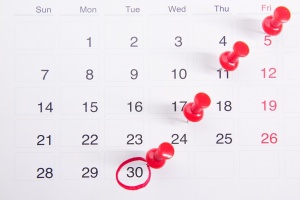
Photo by Luis Villasmil on Unsplash
Every time a person switch tasks, energy is drawn from their cognitive processing. Humans are built to switch tasks every 20 minutes or so; varies from person-to-person and by age. Have a sit-till task, then a doing task. Learning, then resting. Sermons break up long periods of sitting with some song. Working in the field for a while, then a break to take care of the animal. If you are in a lecture, you might find your eyes and mind wandering at the twenty-to-thirty-minute mark.
Modern life overloads this switch task capability with notifications. Beep, beep, beep goes the phone. Co-workers popping in the office for a “quick question.” By the end of the day, the cognitive processor is done with adjusting tasks and decision making. Suddenly pizza or fried chicken looks like a good option on the way home instead of the healthy meal vaguely mapped out in the head from the last grocery trip. Never mind food going bad in the fridge, health issues with salt, and budgets being destroyed. You don’t have time or energy to make a decision.
You are not alone. Research has shown constant interruptions decrease the financial decision-making skills. By living from interruption to interruption, one only lives in the “now”. Long-term goals and critical thinking escape out the window when someone is always coming in through the door with the next new thing. This is a problem for day-to-day life.
And for your writing. If all your cognitive juices are used up before you even drive home, tapping them for creative energy to write at the end of the day becomes impossible.
I can’t write much during the tax season, especially when I’m assigned to a Walmart location. I need to answer the phones and answer all the “quick questions” of passerbys – while dealing with the client, keeping aware of the surroundings to protect their information, monitor emails for needed information, and manage the line. Oh, and the texts from my co-workers who have questions (as well as texts from friends and family about other things in the life, deciding on my food, and taking care of the social media related to my writing/editing occupations).
Ways to free up energy focus on reducing the decision-making and task-switching. If possible, group phone notifications to just three times per day at work. The 8 am coffee break and settle in to work; noon for lunch “conversation” for personal notifications or one for after-lunch getting back into the saddle, then four or four-thirty to close out the day. Five or five-thirty for the drive home for personal responses. People who trim the constant beep-beep-beep down to just three groups per day say they are more productive and less stressed. (Glick, 2022)
Other ways to reduce the cognitive load include making a list of the tasks you WANT to accomplish in the day. When one task is done, look at the list and move on. This way you don’t have to wrack you brain after each task for a new one. Create habits like at the end of the day, flip the hourglass for one group of writing (It’s still working for those following at home about my writing/editing life!). These habits reduce the switch-task costs. Figure out was to cut out distractions, the “just a moment” interruptions. Putting a sign on the door for the work-at-home saying “work hours are 8 to noon and one to five – Any interruptions mean I work over, which mean you do dishes.”
WRITING EXERCISE: Figure out one thing to reduce your cognitive load – either reduction of decision-making or switching tasks – and implement it. For example, setting up notifications to only ding three times a day or turning off the Facebook notifications altogether. Or create a habit, like laying out your clothes the night before so you don’t have to make choices before you have your coffee.
Good luck at limiting your interruptions and restoring your cognitive load to manageable levels.
Comment below what cognitive load burdens are heaviest for you, what you are working on for the Writing Exercise, and how it turned out this week. Follow up in a month or two about it’s impact on your time management and self-care.
Bibliography
Glick, Molly. “Phone Notifications are Messing with Your Brain.” Discovermagazine.com. 2022 April 29. https://www.discovermagazine.com/technology/phone-notifications-are-messing-with-your-brain – last viewed 5/5/2022


